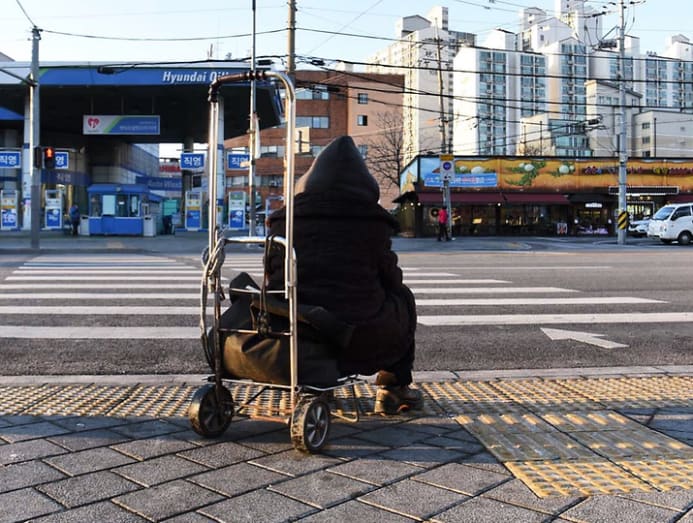Poor and on their own, South Korea’s elderly who will ‘work until they die’
“I will take care of myself as long as I can… then I’ll go to the hospital and die,” says an 81-year-old in a country where nearly half the elderly population is poor. Part 2 of a regional series on elderly poverty.
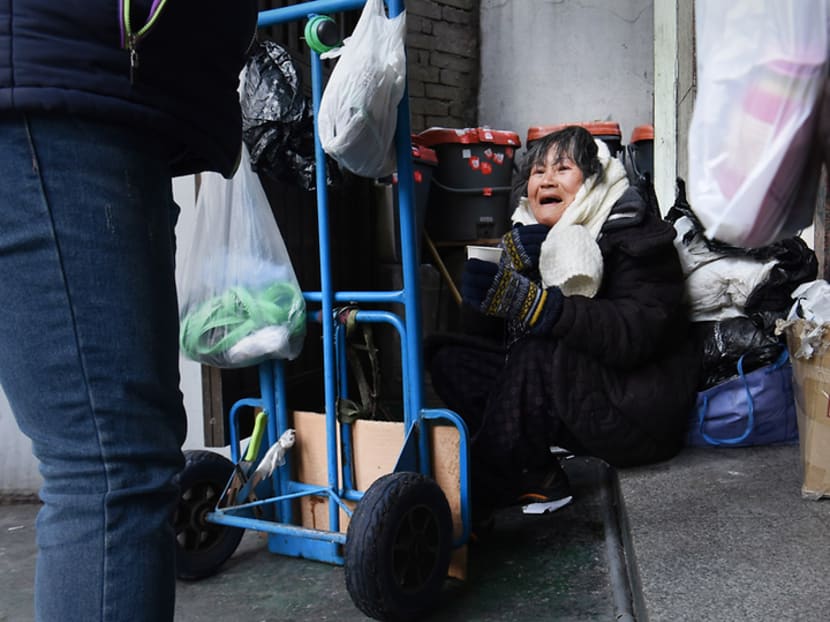
86-year-old Madam Kim takes a break. She works from morning to sunset, collecting more than 100 kg of trash a day. (Photo: Lam Shushan)
Additional reporting by Catherine Lee.
SEOUL: As the snow falls heavy on the city streets, Madam Kim trudges on through the sub-zero weather that has most others huddled indoors, going through her daily routine of gleaning alleyways for waste paper and other recyclable trash.
Severely hunched over, the 81-year-old does this for a living. On a typical day, she circles the city a few times on foot, gathering more than 100 kilogrammes of trash which she takes to a junk depot that buys it for 100 won per kilogramme.
That’s barely 10,000 won, or roughly S$12, for a day’s heavy haul.
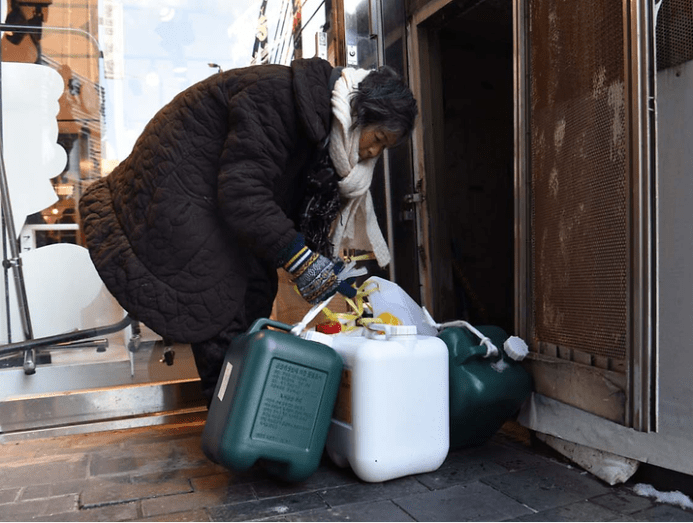
It’s a measly sum to live off in one of the most developed and expensive cities in Asia. But for about 3 million seniors in South Korea who live in poverty, this is how they will live out the final leg of their lives.
“I work because I need to buy medication and I need to buy food. If I get too hungry, I get full by drinking water and eating a cheap meal. Then I continue working,” says Mdm Kim, who might spend 2,000 won (S$2.40) on a simple bowl of rice and soup.
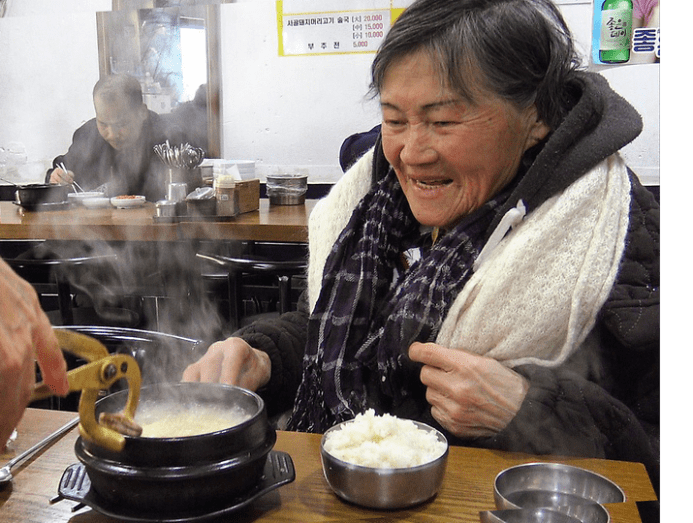
In South Korea, almost half of its elderly population over the age of 65 live in poverty, according to a 2016 OECD economic survey. About a quarter live alone. Many grapple with living in isolation and depression.
While elderly people make up 13 per cent of the population today, this figure is expected to hit 40 per cent by 2060 - and critics say that if the problem of elderly poverty continues to be neglected, it could have catastrophic effects on the country’s economy and the welfare of its citizens.
How did a generation, responsible for turning South Korea into one of the region’s strongest economies, end up so poor?
A GENERATION’S SACRIFICE
South Korea’s comeback from crises like the Japanese Occupation, the Korean War, and the 1997 Asian Financial Crisis, to the technology powerhouse that it is today, has been dubbed an economic miracle.
Professor Lee Ho-Sun from the Korea Soongsil Cyber University in Seoul, who has studied the welfare of the elderly poor for years, said the nation’s prosperity is the “fruit of hardworking people” now in their senior years.
And these seniors have not stopped working - it’s common to see grey-haired men as security guards, elderly female cleaners, and fragile-looking trash collectors working around the buildings of metropolitan Seoul.
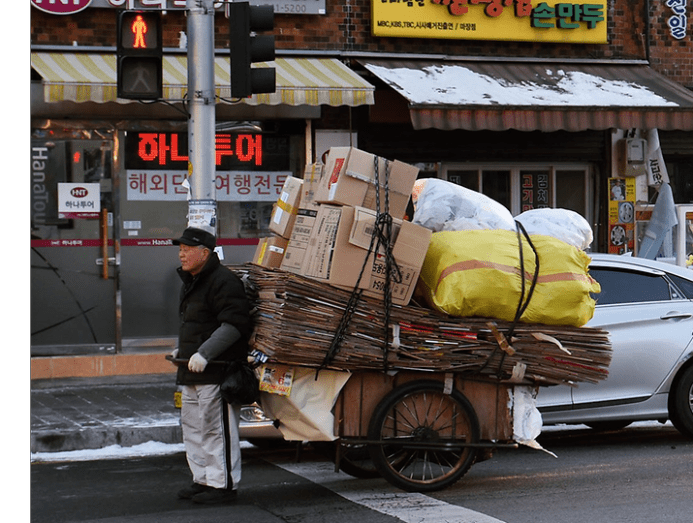
It’s the fate of a “forgotten generation” - those born too early into an era of hardship, yet too late to reap the economic benefits that came after.
“All their sweat and blood went into making this country, and they’re living miserably in their old age now. They’re the victims of tough times,” she told the investigative documentary Get Rea!.
Most of this generation were in their working prime when the 1997 financial crisis struck, putting an estimated 2 million people out of work. Many also fell victim to rife age discrimination in Korea’s corporate culture, forced into early retirement when they were replaced by younger, cheaper workers.
The basic old-age pension only came into place in the late 1980s. With an allowance of 200,000 won a month (about S$250), and criteria that disqualifies those with children, critics say that attempts to build a social safety net for the pioneer generation are too little, too late.
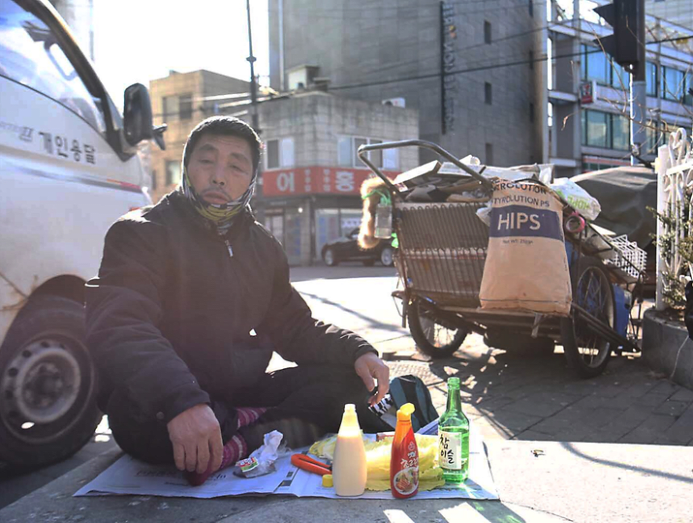
In a country where the average lifespan is over 80 years, many seniors are forced to find means of supporting themselves. In extreme cases, some elderly women have even resorted to prostitution (see this earlier story on granny prostitutes).
Said Prof Ho: “The elderly Koreans have the value of performing duties for their country, and they never expect that the country should do something for them. So they just swallow their difficulties, but it’s like swallowing poison.”
Watch: Why a 78-year-old turned to sex work (2:46)
WHEN CHILDREN ARE LITTLE SUPPORT
Beyond the statistics, the psychological and emotional state of this generation reveals the harsh reality of the situation.
“I cried after listening to some of their stories,” said Mr Shin Sun Ho, a manager at the Silver Volunteer Cooperation Association, a grassroots-level NGO that provides welfare services like free lunches, financial assistance and counselling for the elderly poor in Incheon.
“From young, they’ve lived such weary lives. That’s how I realised that I had to do something about the welfare of our senior citizens,” he said.
The association was formed to help the elderly who fall through the gaps of government support - such as those who are not eligible for financial help because government records show that they have children, who are assumed to be taking care of them.
“In reality, the majority of these elders don’t even have contact with their children,” said Mr Shin.
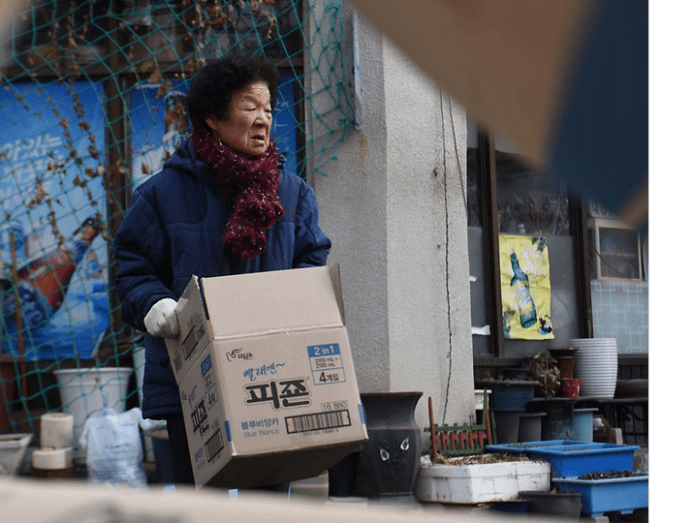
One such person is 86-year-old Madam Yim, who is another trash collector like Mdm Kim.
After being separated from her family during the Korean war, she wandered through the country working on farms and cleaning houses to get by. When she married, her husband lost all their savings on several failed businesses.
Still, Mdm Yim worked hard to support five children, even sending one of them to university. But they all moved away to other cities once they got married, and three years ago, her husband died, leaving her once again without real family support.
“When my daughters visit, they come all at once, then they all leave. My grandchildren are afraid to visit me - they complain about the cockroaches in my place. I get so lonely and bored,” she said with a humourless laugh.
WATCH: Madam Yim’s story (5:30)
‘I DON’T WANT TO WORRY THEM’
With advice from her friends, Mdm Yim started working as a trash collector to “relieve boredom” - a common reason given by seniors who do this kind of work, according to Mr Shin.
But it is unclear whether they say it as a cover - like many from her generation, Mdm Yim would rather take on odd jobs than ask for help, for fear of being a burden to her children and those around her.
A 2015 report by Statistics Korea revealed that 58.5 per cent of the aged population paid for their own living expenses, while 30 per cent of people over the age of 65 were still employed.
One possible explanation - having grown up in destitute times, many seniors think that they have failed their children, and therefore do not deserve to be helped: “How can we ask them for help, when my husband and I were unable to support them when they were young?” said Mdm Yim.
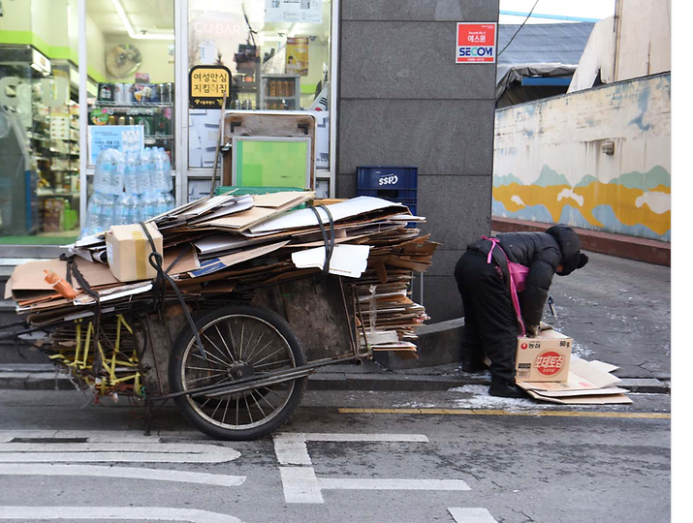
This self-condemning attitude perhaps also fueled another problem: The erosion of traditional social values in a Korean society built on confucianism and filial piety.
Said Prof Ho: “It’s not that the young generation is selfish - they were just never taught the (Korean) culture of social support. Now when parents tell their children they’re fine, the kids take it at face value.”
Although sprightly for her age, Mdm Yim admits that she does struggle. “My daughters think I am healthy, but when I get home, my back hurts and my body aches everywhere. I say I am okay because I don’t want to worry them.”
This divide between the young and the old in Korea is a concern for people like Mr Shin - he says that to solve the problems surrounding the elderly poor, awareness needs to start with the youth.
“They need to realise that they themselves could end up picking cardboard if their own children neglect them in the future,” he said.
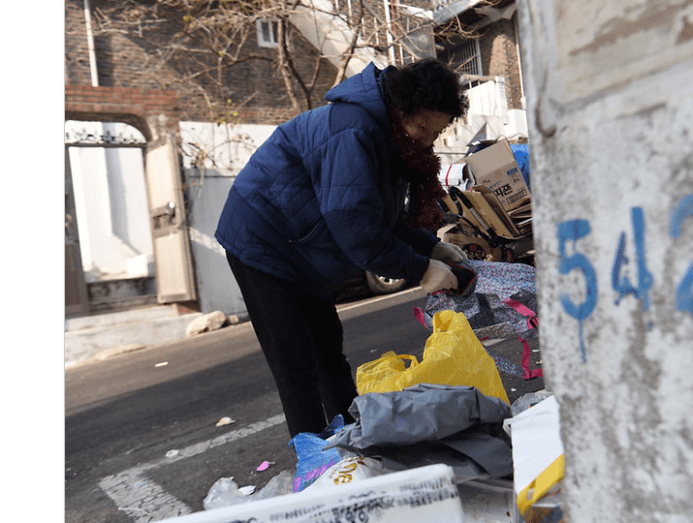
EVEN SICK, THEY ‘DON’T KNOW HOW TO ASK FOR HELP’
Mdm Kim, the first cardboard picker mentioned at the start of this report, had worked as a live-in maid for a wealthy family for 30 years, but was told to leave when she “got too old”.
Unwilling to trouble her children, she rented a cheap room for 50,000 won (about S$60) a month. “The cockroaches made my skin crawl, but I had nowhere else to go, it made me go crazy,” she said.
At 81, and with deteriorating health, she knows that her time is limited. “When I eat, I cannot digest and I vomit. My son asks me to go to the hospital, but I said I don’t want to go. It means that I will go there to die.”
“But I should be prepared to pay for my hospital fees. That’s why I do this,” she added.
While South Korea introduced a Long Term Care Insurance scheme in 2008 to assist the elderly poor with medical bills, individuals have to apply and be screened before being registered in the system.
For people like Mdm Kim concerned with day-to-day survival, complex arrangements like these could put them off asking for help - or they may not even be aware of such government schemes.
Said Prof Ho: “This generation does not have any concept of social welfare. They don’t know how to ask for help, how much help they can get, or even who can help.”
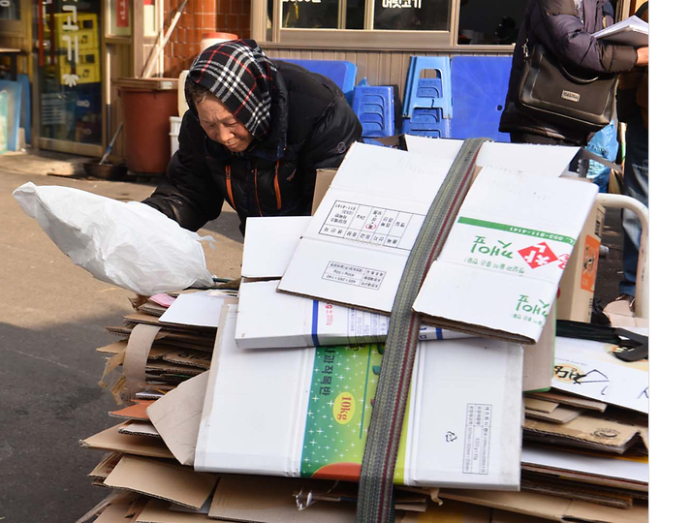
LONG TERM PROGNOSIS: NOT SO GOOD?
What it comes down to is this: The family-centric model of care is losing its relevance in today’s South Korea, and state social welfare systems are far from being able to take up all the slack.
Representative Yang Seung-Jo, who chairs the National Assembly Health and Welfare Committee, said: “In the past, we could ask families to solve their elderly issues within the family. But now, those in their 30s and 40s can’t even support themselves with their income.”
And with a stagnating economy and youth unemployment of 10.4 per cent, the situation for the elderly poor does not look too optimistic, according to Mr Yang.
“It is not that we want to neglect the elderly problem. It is on the government’s agenda, we just need to revise the policies,” he said, explaining that problems with the youth and seniors “cannot be looked at in isolation”.
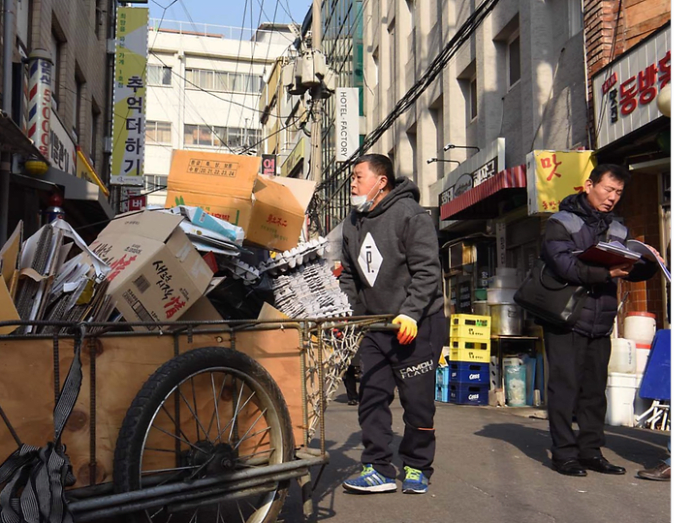
“Our young adults need to earn money and pay taxes for their pension fund. If they can’t contribute to the economy, and can’t take care of their parents, this is a big part of the problem. So unless the young adult’s problems are solved, we cannot solve the elderly’s problems,” he told Get Rea!.
“We must decrease the number of non-tax payers so that later on, we can increase the number of recipients.”
Rapid ageing will put extra stress on the labour force; it is projected that come 2050, there will be just 1.5 workers supporting each elderly person, as compared to 5.1 workers in 2015.
A CALL FOR GREATER PROTECTION
Mr Yang added: “The basic pension budget now is 9.4 trillion won (S$11.6 billion). So this alone is a huge burden for the government.”
But Prof Ho thinks that the government needs to look at social welfare as “not just as a promise; but a duty”. “Protection for our seniors should not only be physical security, but also should include their livelihood and happiness,” she said.
Mr Shin added: “You see on the news quite frequently elders who get killed by vehicles while picking up cardboard. People need to realise how these people are living - maybe that will push the National Assembly to legislate and amend existing policies.”
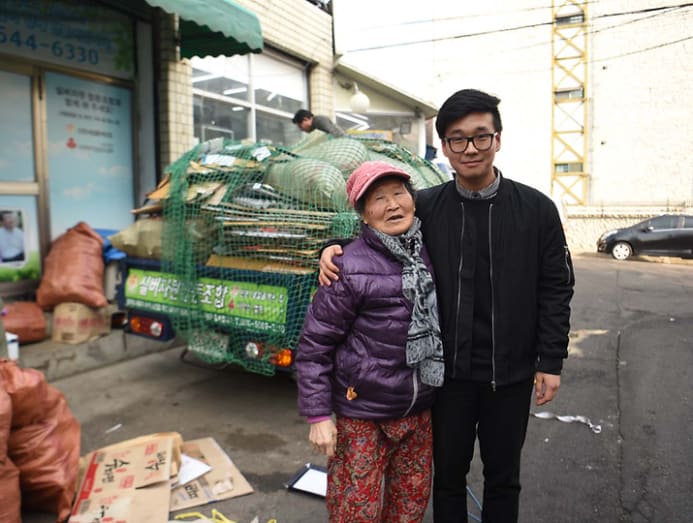
For Mdm Kim, however, all this is just talk about a future she can’t envision, far removed from her own bleak reality.
“I will take care of myself as long as I can,” she said. “Then I’ll withdraw all my savings, go to the hospital and die there, without telling my kids. I only have this in my mind.”
This is part of a CNA Insider series exploring the issues of elderly poverty in Vietnam, South Korea, Singapore and Myanmar.
To read more: Vietnam's ticking time-bomb of elderly poverty
Follow @shushanlam on Twitter or CNAInsider on Instagram.
